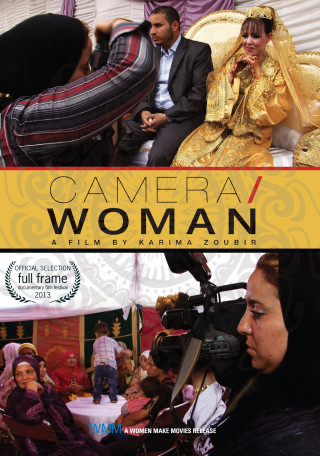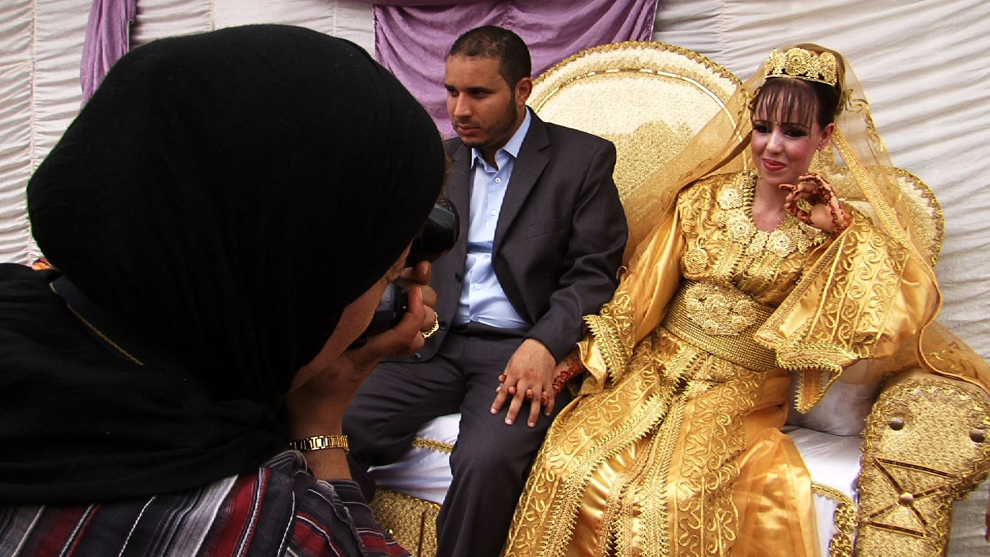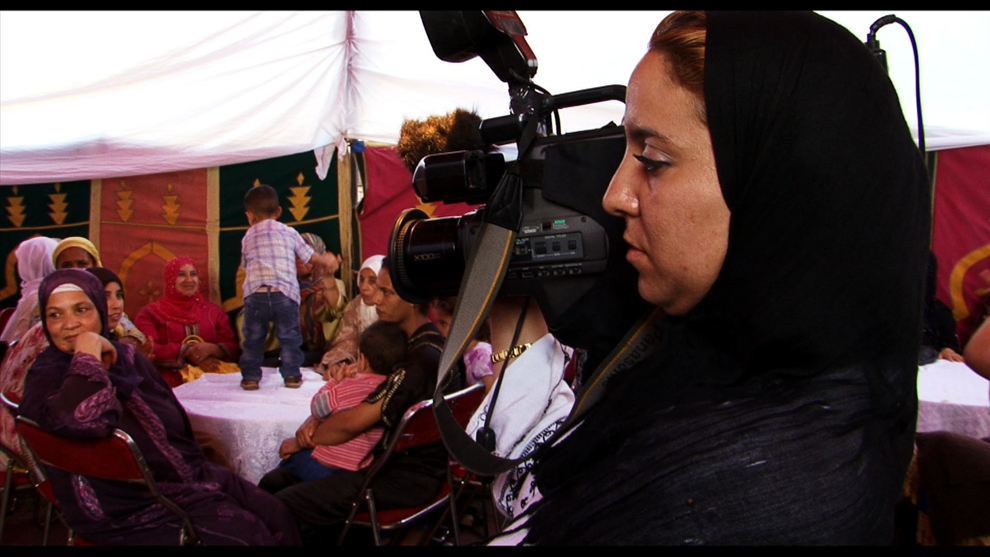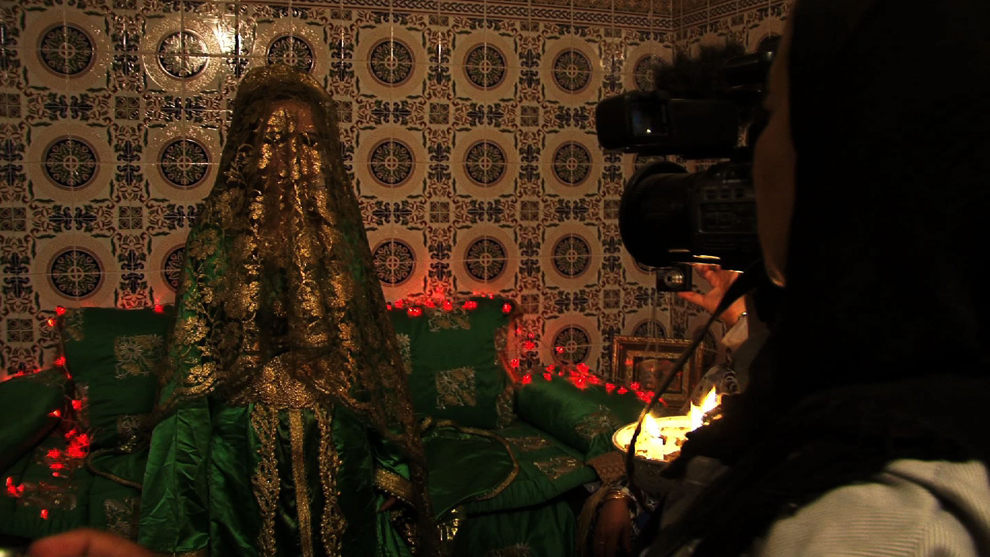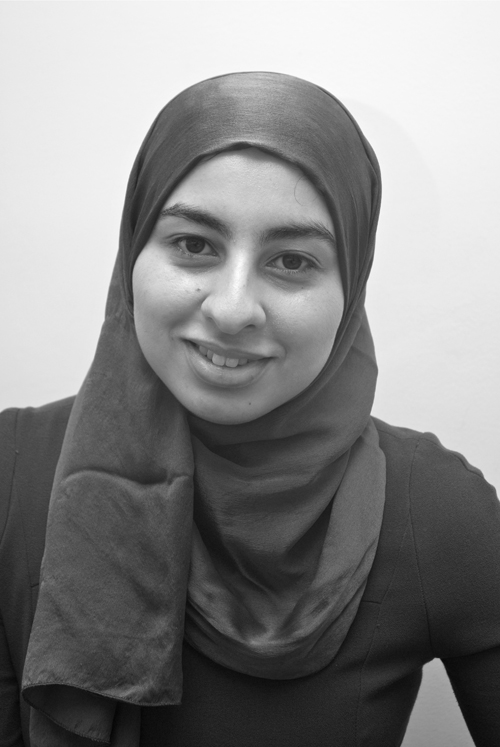Camera/Woman
Morocco | 2012 | 59 minutes | Color | DVD | Arabic | Subtitled | Order No. 131100
SYNOPSIS
PRESS
“Moving and amazing....Camera/Woman is shot in a strikingly intimate style...These are women desperate to provide for their families whose brains cannot collude in the fiction that they can’t do anything, just because they’re women.”
“It is a world of great beauty and sweet dreams in the videos that Khadija’s films, but in reality the weddings are an expression of the struggles women face in contemporary Morocco to combat exclusion and oppression and somehow move beyond them.”
"Zoubir masters this film by breaking the fourth wall and allowing us to delve into the intricacies of Khadija's life..."
"Zoubir’s exploratory documentary pays homage to the strength of Moroccan women who are forging a space for themselves in their society, despite everyone’s condemnation."
SCREENING HIGHLIGHTS AND AWARDS
- International Documentary Film Festival Amsterdam (IDFA), WorldView Award
- International Documentary Festival in Agadir, Human Rights Award
- Cinemed, Ulysses Award for Best Documentary
- Jean Rouch International Film Festival of Ethnographic Cinema, First Appearance (Premier Film)
- Full Frame Documentary Film Festival
- DOXA Documentary Film Festival
- NY/London Human Rights Watch Film Festivals
ABOUT FILMMAKER(S)
Karima Zoubir: Director and Screenwriter of "Camera/Woman" (working title: "A Woman With A Camera") nominated for IDFA Competition for Mid-Length Documentary award. Winner of IDFA Academy Worldview Award. Winner also of the Puma Creative Catalyst Award, a grant for development, at the pitching forum organized by Durban FilmMartin July 2011for her project of documentary “Woman with A Camera”. Andin March 2011, winner also of “Tamkeen”, Grant for Best Arab Doc Project at Dox Box Pitching Forum in March 2011 for the same project.
Karima, with her current editor SofiEscudé, attended editing consultancy at the IDFA academy summer school in June 2012, again with her project of documentary "Woman With A Camera"
Karima has been working as a freelance documentary filmmaker and script girl since graduating cum laude in 2005 from the Audiovisual Department of Casablanca University. In Nov. 2005, she attended her first masterclass on filmmaking given by Martin Scorsese and Abbes Kairostami and organized by Marrakech Tribeca Filmmakers Exchanges. These last few years, she was invited to workshops and markets such as Berlinale Talent Campus, and Greenhouse, Access, Medimed, Durban FilmMart with her project "Woman With A Camera." (4/13)

